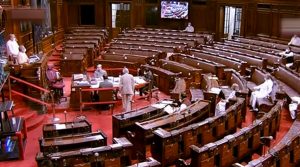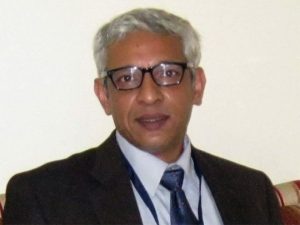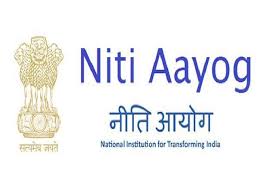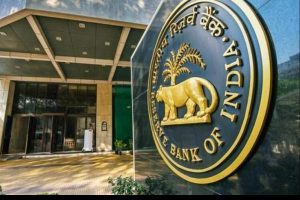Today Current Affairs: 15th December 2021 for UPSC IAS exams, State PSC exams, SSC CGL, State SSC, RRB, Railways, Banking Exam & IBPS, etc
Table of Contents
Trafficking In Persons (Prevention, Care and Rehabilitation) Draft Bill 2021:

The Indian Leadership Forum Against Trafficking (ILFAT) has written to the Ministry of Women and Child Development identifying gaps in the Trafficking in Persons (Prevention, Care and Rehabilitation) draft Bill 2021, which is expected to be tabled in the Winter session of Parliament.
Issues with the Bill:
- While the Bill provides rehabilitation to the survivors, it does not extend the relief beyond shelter homes.
- There is a demand for a community-based rehabilitation model that provides health services, legal aid, access to welfare schemes and income opportunities crucial for ensuring “all-round reintegration of victims’’ back into their community and family.
- According to the United Nations’ human rights experts, it was not in accordance with the international human rights laws.
- The Bill seemed to combine sex work and migration with trafficking.
- The Bill was criticised for addressing trafficking through a criminal law perspective instead of complementing it with a human-rights based and victim-centred approach.
- It was also criticised for promoting “rescue raids” by the police as well as institutionalisation of victims in the name of rehabilitation.
- It was pointed out that certain vague provisions would lead to blanket criminalisation of activities that do not necessarily relate to trafficking.
Provisions in the New Bill:
- It extends to all citizens inside as well as outside India,
- Persons on any ship or aircraft registered in India wherever it may be or carrying Indian citizens wherever they may be,
- A foreign national or a stateless person who has his or her residence in India at the time of commission of offence under this Act, and
- The law will apply to every offence of trafficking in persons with cross-border implications.
- It extends beyond the protection of women and children as victims to now include transgenders as well as any person who may be a victim of trafficking.
- It also does away with the provision that a victim necessarily needs to be transported from one place to another to be defined as a victim.
- Penalty:
- A minimum of seven years which can go up to an imprisonment of 10 years and a fine of Rs 5 lakh in most cases of child trafficking.
- In case of the trafficking of more than one child, the penalty is now life imprisonment.
United Nations Convention On The Law Of The Sea (UNCLOS).:

India remained committed to promoting a free, open and rules-based order rooted in international law and undaunted by coercion, the Centre informed Parliament while reiterating support for the United Nations Convention on the Law of the Sea (UNCLOS).
- As a State party to the UNCLOS, India also supported freedom of navigation and overflight, and unimpeded commerce based on the principles of international law, reflected notably in the UNCLOS 1982.
- The United Nations Convention on the Law of the Sea (UNCLOS), also called the Law of the Sea Convention or the Law of the Sea Treaty, is an international agreement that establishes a legal framework for all marine and maritime activities.
- The Convention resulted from the third United Nations Conference on the Law of the Sea (UNCLOS III), which took place between 1973 and 1982.
- UNCLOS replaced the four treaties of the 1958 Convention on the High Seas.
- UNCLOS came into force in 1994, a year after Guyana became the 60th nation to ratify the treaty.
Collegium System:

The government has said that there was a call from within the judiciary and parliamentarians to change the collegium system for appointment of judges.
- A draft memorandum of procedure for bringing transparency and accountability to the system was submitted by the Government to the Supreme Court, and it was pending.
- In exercise of the powers conferred by clause (2) of Article 124 of the Constitution of India, the appointments are made by the President of India.
- The names are recommended by the Collegium.
- The norms relating to the eligibility has been envisaged in the Article 124 of the Indian Constitution.
- To become a judge of the Supreme court, an individual should be an Indian citizen.
- In terms of age, a person should not exceed 65 years of age.
- The person should serve as a judge of one high court or more (continuously), for at least five years or the person should be an advocate in the High court for at least 10 years or a distinguished jurist.
Collegium System:
- It is the system of appointment and transfer of judges that has evolved through judgments of the SC, and not by an Act of Parliament or by a provision of the Constitution.
- The SC collegium is headed by the CJI and comprises four other senior most judges of the court.
- A HC collegium is led by its Chief Justice and four other senior most judges of that court.
- The collegium sends its final recommendation to the President of India for approval.
- The President can either accept it or reject it.
- In the case it is rejected, the recommendation comes back to the collegium. If the collegium reiterates its recommendation to the President, then he/she is bound by that recommendation.
Privilege Motion:

Two Trinamool Congress MPs and three of the Congress have moved a privilege motion against former Chief Justice of India and Rajya Sabha member Ranjan Gogoi over his remarks that he attended the House when he felt like doing so.
- Since he joined the House in March 2020, Mr. Gogoi, a nominated member, has attended proceedings only six times.
- According to the rules, a member should attend at least one day during the session and if not, the member should apply for leave which has to be sanctioned by the House.
- During a recent interview to the NDTV, Ranjan Gogoi was asked about his attendance in Parliament. The former CJI had cited Covid curbs and discomfort with the lack of social distancing and seating arrangements.
- The motion says the statements constitute a breach and undermine the dignity of the House.
Parliamentary Privileges:
- Parliamentary Privileges are certain rights and immunities enjoyed by members of Parliament, individually and collectively, so that they can “effectively discharge their functions”.
- Article 105 of the Constitution expressly mentions two privileges, that is, freedom of speech in Parliament and right of publication of its proceedings.
- Apart from the privileges as specified in the Constitution, the Code of Civil Procedure, 1908, provides for freedom from arrest and detention of members under civil process during the continuance of the meeting of the House or of a committee thereof and forty days before its commencement and forty days after its conclusion.
Motion against breaches:
- When any of these rights and immunities are disregarded, the offence is called a breach of privilege and is punishable under law of Parliament.
- A notice is moved in the form of a motion by any member of either House against those being held guilty of breach of privilege.
The Speaker/RS chairperson is the first level of scrutiny of a privilege motion.
- The Speaker/Chair can decide on the privilege motion himself or herself or refer it to the privileges committee of Parliament.
- If the Speaker/Chair gives consent under relevant rules, the member concerned is given an opportunity to make a short statement.
- The Constitution also extends the parliamentary privileges to those persons who are entitled to speak and take part in the proceedings of a House of Parliament or any of its committees. These include the Attorney General of India.
- The parliamentary privileges do not extend to the President who is also an integral part of the Parliament. Article 361 of the Constitution provides for privileges for the President.
Governor’s Role In Universities:

A controversy has erupted in Kerala over the reappointment of Gopinath Ravindran as the Vice Chancellor of Kannur University.
- The appointment was against the decision of the Governor as the Chancellor of State Universities.
- While the Governor’s powers and functions as the Chancellor are laid out in the statutes that govern the universities under a particular state government, their role in appointing the Vice Chancellors has often triggered disputes with the political executive.
Role of Governors in State Universities:
- In most cases, the Governor of the state is the ex-officio chancellor of the universities in that state.
- While as Governor he functions with the aid and advice of the Council of Ministers, as Chancellor he acts independently of the Council of Ministers and takes his own decisions on all University matters.
Case of Central Universities:
- Under the Central Universities Act, 2009, and other statutes, the President of India shall be the Visitor of a central university.
- With their role limited to presiding over convocations, Chancellors in central universities are titular heads, who are appointed by the President in his capacity as Visitor.
- The Vice Chancellor too are appointed by the Visitor from panels of names picked by search and selection committees formed by the Union government.
- The Act adds that the President, as Visitor, shall have the right to authorise inspections of academic and non-academic aspects of the universities and also to institute inquiries.
Second Edition Of Water Innovation Challenges:

Atal Innovation Mission, NITI Aayog and the Royal Embassy of Denmark to India announced the second edition of water innovation challenges here to address the global water woes through innovations as part of the Indo-Danish Bilateral Green Strategic partnership
- The AIM-ICDK water challenge is being rolled out under the year-old ambitious partnership of AIM, NITI Aayog and Innovation Center Denmark (ICDK) under the aegis of Denmark Embassy in India, and the Denmark Technical University (DTU).
- The initiative aims to identify innovative & next-gen solutions to solve proposed challenges in collaboration with corporate and public partners.
- The initiative will engage young talents from leading universities and innovation hubs across the nation to build their skills and apply their technical disciplines and innovation capacity.
- The winners of the challenges will also represent India at the International Water Congress 2022.
- The Denmark Embassy in India, and the DTU will be preparing the Indian participants for the Global Next Generation Water Action (NGWA) program to be hosted by DTU.
Bank NBFC:

A November 2020 decision by the Reserve Bank of India (RBI) to permit banks to “co-lend with all registered NBFCs (including HFCs) based on a prior agreement”, has led to unusual tie-ups like the one announced earlier this month between the State Bank of India (SBI) and Adani Capital
The ‘Co-Lending Model’
- In September 2018, the RBI had announced “co-origination of loans” by banks and Non-Banking Financial Companies (NBFCs) for lending to the priority sector.
- The arrangement entailed joint contribution of credit at the facility level by both the lenders as also sharing of risks and rewards.
- Subsequently, the central bank allowed the lenders greater operational flexibility, while requiring them to conform to regulatory guidelines.
- The primary focus of the revised scheme, rechristened as ‘Co-Lending Model’ (CLM), was to
- improve the flow of credit to the unserved and underserved sector of the economy and
- make available funds to the ultimate beneficiary at an affordable cost, considering the lower cost of funds from banks and greater reach of the NBFCs.
Bank-NBFC tie-ups:
- Several banks have entered into co-lending ‘master agreements’ with NBFCs, and more are in the pipeline.
- On December 2, SBI, the country’s largest lender, signed a deal with Adani Capital, a small NBFC of a big corporate house, for co-lending to farmers to help them buy tractors and farm implements.
- On November 24, Union Bank of India entered into a co-lending agreement with Capri Global Capital Ltd (CGCL).
Supersonic Missile-Assisted Torpedo System: DRDO

A supersonic missile-assisted torpedo system developed by the Defence Research and Development Organisation (DRDO) was successfully launched from Wheeler Island in Odisha.
- The system is a next-generation missile-based stand-off torpedo delivery system. During the mission, full-range capability of the missile was successfully demonstrated.
- The system has been designed to enhance anti-submarine warfare capability far beyond the conventional range of the torpedo.
- The missile carried a torpedo, parachute delivery system and release mechanisms.
- This canister-based missile system consists of advanced technologies — two-stage solid propulsion, electro-mechanical actuators and precision inertial navigation.
- The missile is launched from a ground mobile launcher and it can cover a range of distances.
- While a number of DRDO laboratories developed various technologies for this system, industry participated in the development and production of various sub-systems.
Miss Universe 2021:Harnaaz Sandhu

India’s Harnaaz Sandhu made history as she was crowned Miss Universe 2021, 21 years after India last brought home the title when Lara Dutta was crowned Miss Universe 2000.
- Harnaaz Kaur Sandhu (born 3 March 2000) is an Indian model and beauty pageant titleholder who was crowned Miss Universe 2021.
- She is the third entrant from India to win Miss Universe.
- Before Harnaaz Sandhu, the Miss Universe title was won by two Indians – Sushmita Sen in 1994 and Lara Dutta in 2000.
Miss Universe Contest
- Miss Universe is an annual international beauty pageant that is run by the United States–based Miss Universe Organization.
- It is one of the most watched pageants in the world with an estimated audience of over 500 million viewers in over 190 territories.
- It was started in 1952




